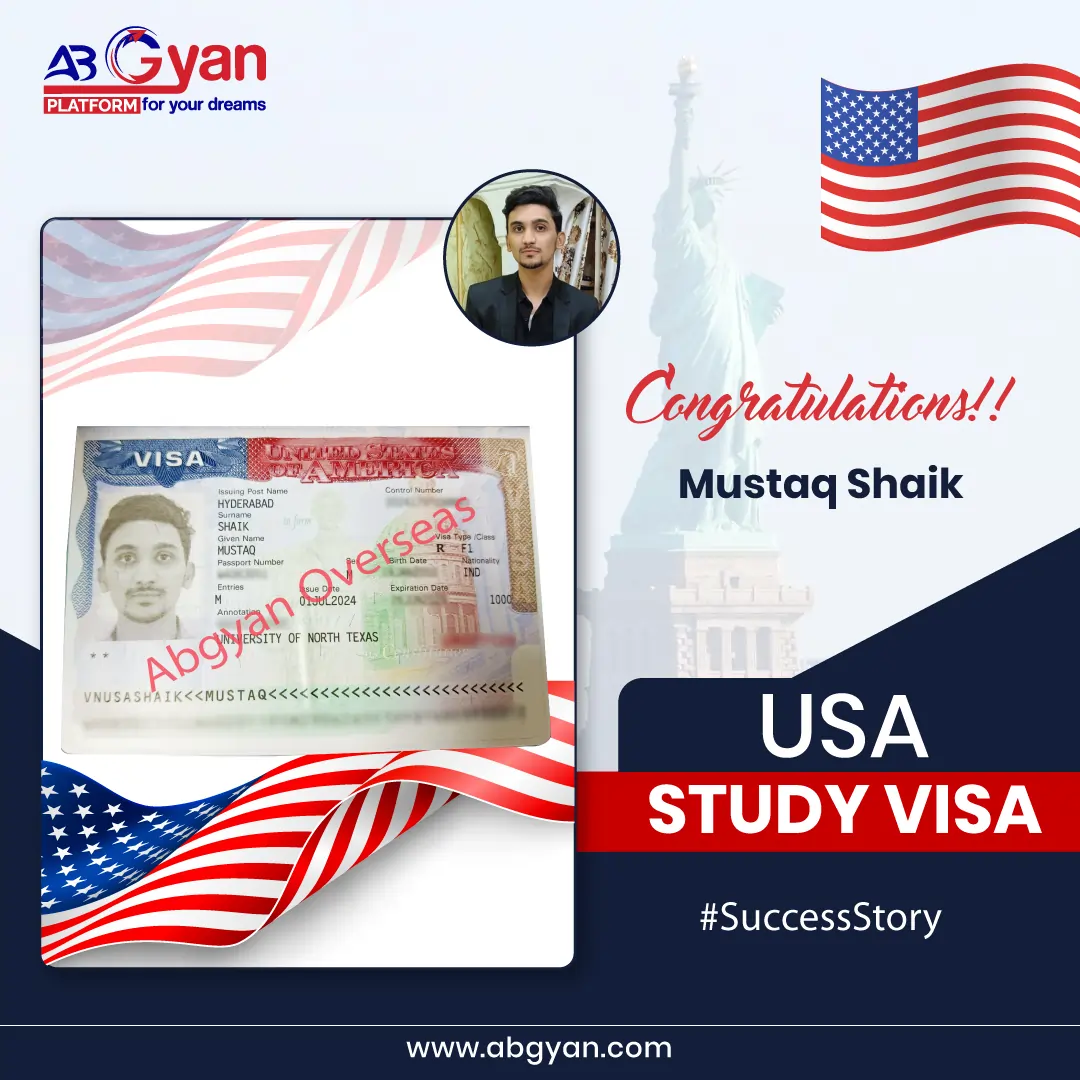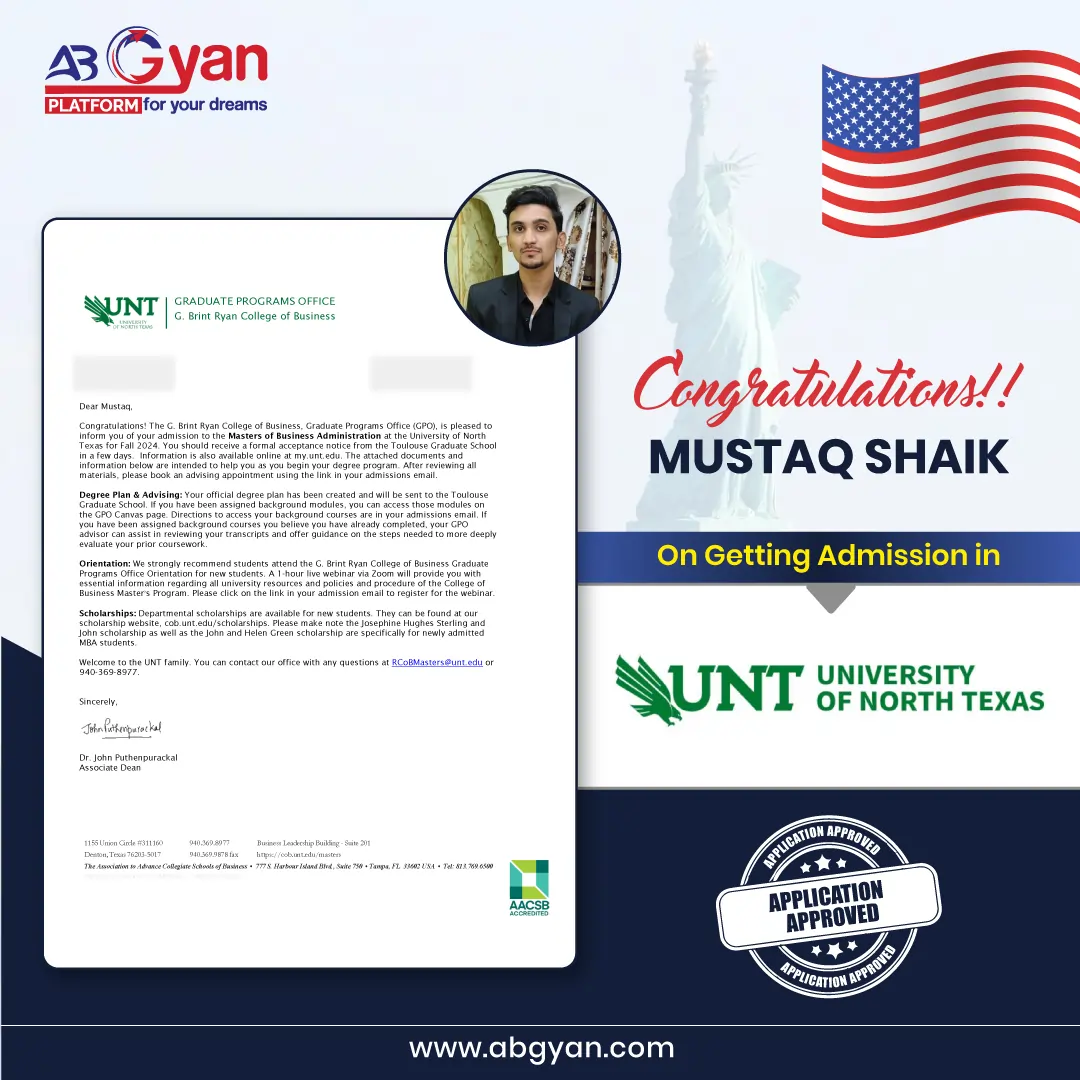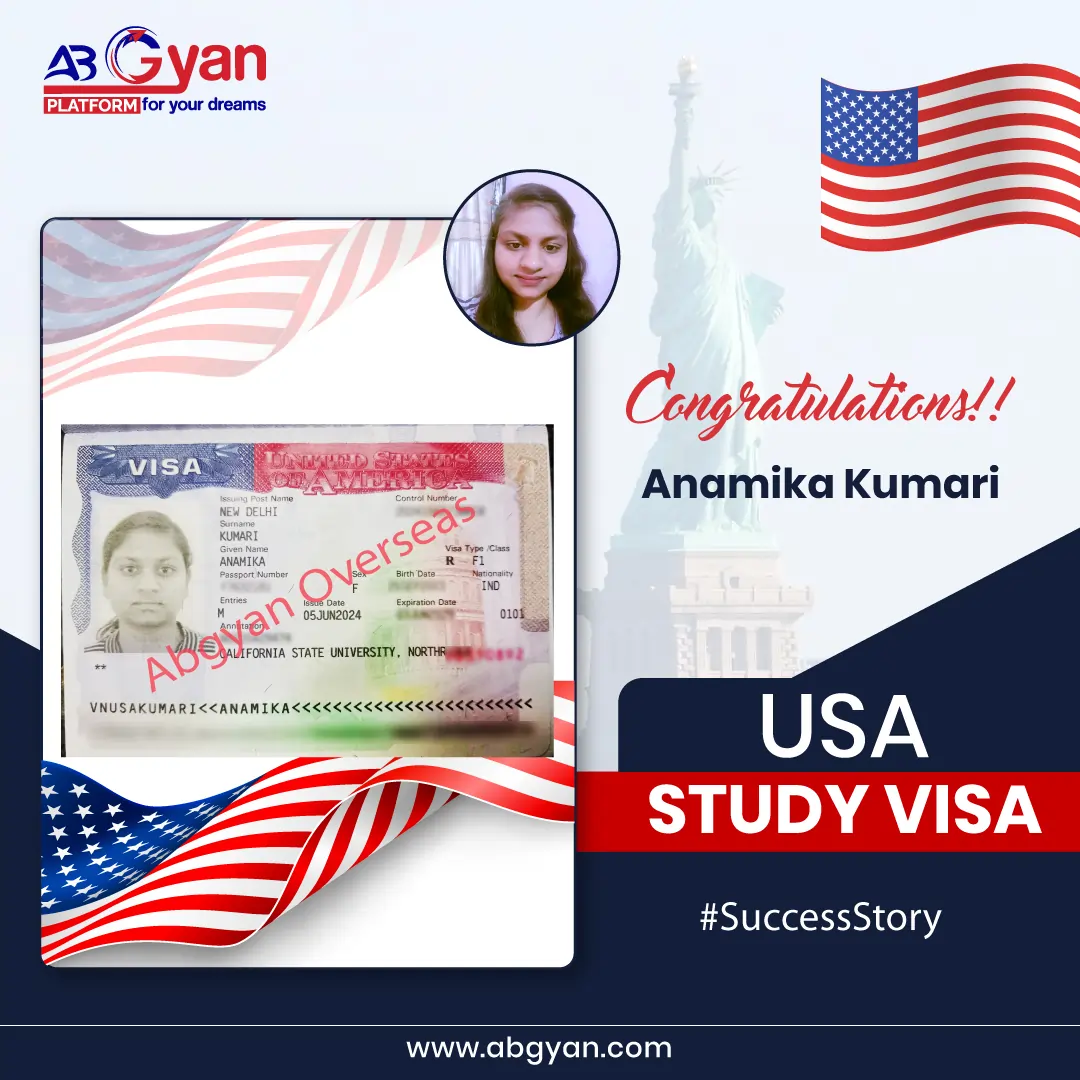
Crack IELTS Exam With 8+ Bands in first go by getting training from
Brief Overview of the IELTS Training Course
The International English Language Testing System "IELTS" is a globally recognized English language test. Best IELTS coaching centre are designed to assess your listening, reading, writing, and speaking skills. IELTS is generally accepted for study and immigration purposes. There are two main types of exams: academic education and general education, which are important in facilitating international communication and mobility. Coaching Benefits Register for IELTS Coaching This Program has many benefits and can ensure a successful exam. The best IELTS coaching centre teaches you effective time management and stress management techniques and comprehensively prepares you for all its IELTS modules.
Meet our Advisors Now
(Join between Mon to Sat 10:00 AM to 6:00 PM IST)
IELTS Reading Test

Duration
60 MinutesQuestions
40 QuestionsIELTS Listening Test

Duration
30 MinutesQuestions
40 QuestionsIELTS Writing Test

Duration
60 MinutesQuestions
40 QuestionsIELTS Speaking Test

Duration
14 MinutesQuestions
40 QuestionsCourse Training Content
IELTS reading test consists of 40 questions. The students have to decode these questions and answer them in 60 minutes. No extra time is allotted to students for transferring their answers to the answer script.
In the Academic IELTS test, students get three reading passages and they are quite lengthy. On the other hand, in the General IELTS test, there are four reading passages that are very short and easy.
Different types of questions are asked in the reading test of the IELTS exam such as:
- True or false questions
- Completion type questions
- Matching type questions
- Multiple-choice questions
True/False
These are types of questions in which students have to mark the statement as true/false or not given. The trick to handling these questions is that if you have lots of synonyms in the reading passage that are related to your statement then you must mark the statement as true.
Completion Type
To tackle completion-type questions students must focus on finding the missing part or piece of the puzzle. However, make you keep in mind the word limit while answering these questions. There are mainly seven sub-categories of this category:
- Fillups: To answer these types of questions students have to find the right words for filling in the blanks. The key trick to answering these questions is understanding the statement and locating its synonyms in the passage.
- Summary Completion: This question type requires students to complete the summary of a paragraph in the passage. The summary completion question is from one or two paragraphs. You don't have to write a summary of the complete passage. Once you find the first sentence of the para answering the question becomes a kid’s play.
- Diagram Completion: These are the types of questions in which students have to complete a pictorial representation. To tackle this question, study the passage carefully and examine the terminology of the diagram.
- Flow chart: These questions are very easy to answer. This is mainly because step-by-step instructions are given to students in the passage. All you have to do is just find the first step of the flow chart in the passage and you can complete the flow chart easily.
- Table completion: In a table-type question students need to fill in the missing content of the table by reading the passage.
Matching Type
Matching-type questions consist of two sets of data/information and students have to match them by referring to the passage. There are mainly three sub-categories of this category:
- Matching Headings to Paragraphs: These questions require the student to select a heading from the list of headings and place it near the related paragraph.
- Matching paragraph information: These questions require students to select a question from the list of questions and match it with a paragraph that contains similar information.
- Matching the sentence endings: These questions require students to select a question from the list of questions and match it with a paragraph that contains similar information.
Multiple-Choice Questions
These are the questions that come with 3 or 4 options. The students must select the right option that answers the question after going through the passage. These questions are usually very easy to answer. But make sure carefully go through the passage so you don’t end up selecting the wrong answer.
Handholding by an expert trainer
During the IELTS sessions for the reading test, you will learn about the reading test in detail. Moreover, you will become familiar with tips for cracking different types of questing in the exam. At the beginning of training, students will be taught about different questions in the reading test. After the initial phase, students will have to practice cracking different types of questions in the reading test. Regular mock tests will also be conducted to check the progress of students.
Curriculum of the Sessions
Starting with the sessions…
• Session 1 – 4
- Explanation and practice of true/false or not given type questions.
- Mock test
• Session 5 – 6
- Describing and practising short-answer-type questions
• Session 7 – 10
- Explanation & practice of matching the headings type questions
• Session 11 – 13
- Describing & practising matching the sentence endings type questions and matching the information with the paragraph type questions.
- The mock test of matching-type questions
• Session 14 – 18
- Discussing & practising completion-type questions
- mock test
• Session 19 – 23
- Explanation & Practice of Multiple-choice questions.
After the completion of the sessions, you will be having one reading mock test as per the standards of the actual IELTS exam. This test will be for 1 hour and with a timer.
IELTS Listening test consists of 40 questions. The students have to decode these questions and answer them in 60 minutes. No extra time is allotted to students for transferring their answers to the answer script.
In the Academic IELTS test, students get three reading passages and they are quite lengthy. On the other hand, in the General IELTS test, there are four reading passages that are very short and easy.
Different types of questions are asked in the reading test of the IELTS exam such as:
- True or false questions
- Completion type questions
- Matching type questions
- Multiple-choice question
True/False
These are types of questions in which students have to mark the statement as true/false or not given. The trick to handling these questions is that if you have lots of synonyms in the reading passage that are related to your statement then you must mark the statement as true.
Completion Type
To tackle completion-type questions students must focus on finding the missing part or piece of the puzzle. However, make you keep in mind the word limit while answering these questions. There are mainly seven sub-categories of this category:
- Fillups: To answer these types of questions students have to find the right words for filling in the blanks. The key trick to answering these questions is understanding the statement and locating its synonyms in the passage.
- Summary Completion: This question type requires students to complete the summary of a paragraph in the passage. The summary completion question is from one or two paragraphs. You don't have to write a summary of the complete passage. Once you find the first sentence of the para answering the question becomes a kid’s play.
- Diagram Completion: These are the types of questions in which students have to complete a pictorial representation. To tackle this question, study the passage carefully and examine the terminology of the diagram.
- Flow chart: These questions are very easy to answer. This is mainly because step-by-step instructions are given to students in the passage. All you have to do is just find the first step of the flow chart in the passage and you can complete the flow chart easily.
- Table completion: In a table-type question students need to fill in the missing content of the table by reading the passage.
Matching Type
Matching-type questions consist of two sets of data/information and students have to match them by referring to the passage. There are mainly three sub-categories of this category:
- Matching Headings to Paragraphs: These questions require the student to select a heading from the list of headings and place it near the related paragraph.
- Matching paragraph information: These questions require students to select a question from the list of questions and match it with a paragraph that contains similar information.
- Matching the sentence endings: These questions require students to select a question from the list of questions and match it with a paragraph that contains similar information.
Multiple-Choice Questions
These are the questions that come with 3 or 4 options. The students must select the right option that answers the question after going through the passage. These questions are usually very easy to answer. But make sure carefully go through the passage so you don’t end up selecting the wrong answer.
Handholding by an expert trainer
During the IELTS sessions for the reading test, you will learn about the reading test in detail. Moreover, you will become familiar with tips for cracking different types of questing in the exam. At the beginning of training, students will be taught about different questions in the reading test. After the initial phase, students will have to practice cracking different types of questions in the reading test. Regular mock tests will also be conducted to check the progress of students.
Curriculum of the Sessions
Starting with the sessions…
• Session 1 – 4
- Explanation and practice of true/false or not given type questions.
- Mock test
• Session 5 – 6
- Describing and practising short-answer-type questions
• Session 7 – 10
- Explanation & practice of matching the headings type questions
• Session 11 – 13
- Describing & practising matching the sentence endings type questions and matching the information with the paragraph type questions.
- The mock test of matching-type questions
• Session 14 – 18
- Discussing & practising completion-type questions
- mock test
• Session 19 – 23
- Explanation & Practice of Multiple-choice questions.
After the completion of the sessions, you will be having one reading mock test as per the standards of the actual IELTS exam. This test will be for 1 hour and with a timer.
IELTS writing test consists of 40 questions. The students have to decode these questions and answer them in 60 minutes. No extra time is allotted to students for transferring their answers to the answer script.
In the Academic IELTS test, students get three reading passages and they are quite lengthy. On the other hand, in the General IELTS test, there are four reading passages that are very short and easy.
Different types of questions are asked in the reading test of the IELTS exam such as:
- True or false questions
- Completion type questions
- Matching type questions
- Multiple-choice question
True/False
These are types of questions in which students have to mark the statement as true/false or not given. The trick to handling these questions is that if you have lots of synonyms in the reading passage that are related to your statement then you must mark the statement as true.
Completion Type
To tackle completion-type questions students must focus on finding the missing part or piece of the puzzle. However, make you keep in mind the word limit while answering these questions. There are mainly seven sub-categories of this category:
- Fillups: To answer these types of questions students have to find the right words for filling in the blanks. The key trick to answering these questions is understanding the statement and locating its synonyms in the passage.
- Summary Completion: This question type requires students to complete the summary of a paragraph in the passage. The summary completion question is from one or two paragraphs. You don't have to write a summary of the complete passage. Once you find the first sentence of the para answering the question becomes a kid’s play.
- Diagram Completion: These are the types of questions in which students have to complete a pictorial representation. To tackle this question, study the passage carefully and examine the terminology of the diagram.
- Flow chart: These questions are very easy to answer. This is mainly because step-by-step instructions are given to students in the passage. All you have to do is just find the first step of the flow chart in the passage and you can complete the flow chart easily.
- Table completion: In a table-type question students need to fill in the missing content of the table by reading the passage.
Matching Type
Matching-type questions consist of two sets of data/information and students have to match them by referring to the passage. There are mainly three sub-categories of this category:
- Matching Headings to Paragraphs: These questions require the student to select a heading from the list of headings and place it near the related paragraph.
- Matching paragraph information: These questions require students to select a question from the list of questions and match it with a paragraph that contains similar information.
- Matching the sentence endings: These questions require students to select a question from the list of questions and match it with a paragraph that contains similar information.
Multiple-Choice Questions
These are the questions that come with 3 or 4 options. The students must select the right option that answers the question after going through the passage. These questions are usually very easy to answer. But make sure carefully go through the passage so you don’t end up selecting the wrong answer.
Handholding by an expert trainer
During the IELTS sessions for the reading test, you will learn about the reading test in detail. Moreover, you will become familiar with tips for cracking different types of questing in the exam. At the beginning of training, students will be taught about different questions in the reading test. After the initial phase, students will have to practice cracking different types of questions in the reading test. Regular mock tests will also be conducted to check the progress of students.
Curriculum of the Sessions
Starting with the sessions…
• Session 1 – 4
- Explanation and practice of true/false or not given type questions.
- Mock test
• Session 5 – 6
- Describing and practising short-answer-type questions
• Session 7 – 10
- Explanation & practice of matching the headings type questions
• Session 11 – 13
- Describing & practising matching the sentence endings type questions and matching the information with the paragraph type questions.
- The mock test of matching-type questions
• Session 14 – 18
- Discussing & practising completion-type questions
- mock test
• Session 19 – 23
- Explanation & Practice of Multiple-choice questions.
After the completion of the sessions, you will be having one reading mock test as per the standards of the actual IELTS exam. This test will be for 1 hour and with a timer.
IELTS speaking test consists of 40 questions. The students have to decode these questions and answer them in 60 minutes. No extra time is allotted to students for transferring their answers to the answer script.
In the Academic IELTS test, students get three reading passages and they are quite lengthy. On the other hand, in the General IELTS test, there are four reading passages that are very short and easy.
Different types of questions are asked in the reading test of the IELTS exam such as:
- True or false questions
- Completion type questions
- Matching type questions
- Multiple-choice question
True/False
These are types of questions in which students have to mark the statement as true/false or not given. The trick to handling these questions is that if you have lots of synonyms in the reading passage that are related to your statement then you must mark the statement as true.
Completion Type
To tackle completion-type questions students must focus on finding the missing part or piece of the puzzle. However, make you keep in mind the word limit while answering these questions. There are mainly seven sub-categories of this category:
- Fillups: To answer these types of questions students have to find the right words for filling in the blanks. The key trick to answering these questions is understanding the statement and locating its synonyms in the passage.
- Summary Completion: This question type requires students to complete the summary of a paragraph in the passage. The summary completion question is from one or two paragraphs. You don't have to write a summary of the complete passage. Once you find the first sentence of the para answering the question becomes a kid’s play.
- Diagram Completion: These are the types of questions in which students have to complete a pictorial representation. To tackle this question, study the passage carefully and examine the terminology of the diagram.
- Flow chart: These questions are very easy to answer. This is mainly because step-by-step instructions are given to students in the passage. All you have to do is just find the first step of the flow chart in the passage and you can complete the flow chart easily.
- Table completion: In a table-type question students need to fill in the missing content of the table by reading the passage.
Matching Type
Matching-type questions consist of two sets of data/information and students have to match them by referring to the passage. There are mainly three sub-categories of this category:
- Matching Headings to Paragraphs: These questions require the student to select a heading from the list of headings and place it near the related paragraph.
- Matching paragraph information: These questions require students to select a question from the list of questions and match it with a paragraph that contains similar information.
- Matching the sentence endings: These questions require students to select a question from the list of questions and match it with a paragraph that contains similar information.
Multiple-Choice Questions
These are the questions that come with 3 or 4 options. The students must select the right option that answers the question after going through the passage. These questions are usually very easy to answer. But make sure carefully go through the passage so you don’t end up selecting the wrong answer.
Handholding by an expert trainer
During the IELTS sessions for the reading test, you will learn about the reading test in detail. Moreover, you will become familiar with tips for cracking different types of questing in the exam. At the beginning of training, students will be taught about different questions in the reading test. After the initial phase, students will have to practice cracking different types of questions in the reading test. Regular mock tests will also be conducted to check the progress of students.
Curriculum of the Sessions
Starting with the sessions…
• Session 1 – 4
- Explanation and practice of true/false or not given type questions.
- Mock test
• Session 5 – 6
- Describing and practising short-answer-type questions
• Session 7 – 10
- Explanation & practice of matching the headings type questions
• Session 11 – 13
- Describing & practising matching the sentence endings type questions and matching the information with the paragraph type questions.
- The mock test of matching-type questions
• Session 14 – 18
- Discussing & practising completion-type questions
- mock test
• Session 19 – 23
- Explanation & Practice of Multiple-choice questions.
After the completion of the sessions, you will be having one reading mock test as per the standards of the actual IELTS exam. This test will be for 1 hour and with a timer.
IELTS Coaching Benefits
If you are someone looking to study abroad like Study in UK or any other country you have to go through IELTS exam. Benefit from a structured, results-oriented approach that will help you reach your full potential and lead to higher band scores and greater success in the IELTS exam.
- Best IELTS coaching centre improves language skills in all four IELTS modules.
- Expert advice: experienced instructors provide personalized feedback and strategic insight.
- Learn techniques to navigate each section for optimal performance.
- IELTS exam coaching centres address specific weaknesses through customized sessions.
- Familiarize yourself with the exam conditions to improve your confidence.
- Best IELTS coaching centre focuses on all aspects of the exam.
- Mastering skills and strategies will increase your confidence when tackling the IELTS exam.
- IELTS exam coaching centre maximizes your potential & improves your preparation.
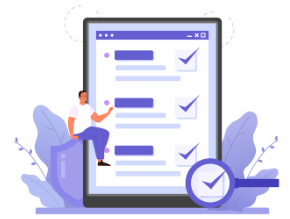
Education Loan Assistance
Feel free to talk to our Abroad Counsellors.How To Prepare For The English Proficiency Test?
Opting for the best IELTS training institute for Study in USA can help you in a smoother transition of IELTS. The process becomes easy if you are opting for best IELTS training institute otherwise you can choose the below steps:
- Start by assessing your current language skills and identifying specific strengths and weaknesses.
- Participate in regular reading, writing, listening, and speaking practice to improve your overall language skills.
- Familiarize yourself with test formats and hone your skills with language learning apps, online courses, and practice tests.
- Enroll in our top-rated English exam preparation course and receive expert guidance, structured lessons, and personalized feedback.
Work on Your English Skills
You cannot master the English language in just one day. But with dedication and practice, you can easily master the English language. By working on your English skills, you can easily improve your English in a very short time.
Understand the Test Format
Become familiar with the format of the exam by going through its structure and the types of questions that are there in the exam. This will help you become comfortable in answering all the types of questions of the exam.
Practice Sample Questions
Another thing that you can do to prepare for the language test is to download/practice solving sample IELTS questions. Practice solving as many IELTS sample papers as you can. This will help you a lot in building your speed.
Join a Preparation Course
If you wish to clear the IELTS exam with flying colors, then you may join a preparation course. There are hundreds of IELTS training centers that offer quality IELTS training. Most IELTS aspirants attend preparation courses.
Why choose us?
When you choose AbGyan IELTS training course for Study in Canada you are guaranteed an innovative learning experience, which sets us apart in several key aspects. Our IELTS training course is led by experienced instructors with a proven track record of helping students achieve their desired band scores. Our IELTS training classes provide personal support, identify individual strengths and weaknesses, and tailor coaching sessions effectively. Our IELTS training classes have been carefully designed and cover all four IELTS modules, with an emphasis on real-world language applications.
Additionally, our classes are the best IELTS coaching classes that emphasize a student-centered approach and foster a supportive learning environment that encourages questions, discussion, and collaborative learning. With our commitment to excellence, results-oriented methodology, and student success, by choosing the best IELTS coaching for Study in Australia you will receive comprehensive preparation.
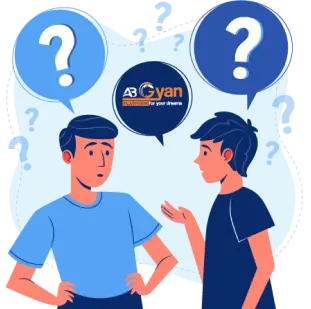
Self Assessment
Learn, Grow & Test your skill with Online Assessment
Exam to achieve your Certification Goals
Frequently Asked Questions (FAQs)
Below is a listing of frequently asked questions. If you find any difficulty in solving your queries, then feel free to get in touch with us.
The International English Language Testing System (IELTS) is a standardized test designed to assess the language proficiency of candidates who want to study, work, or migrate to English-speaking countries.
IELTS comprises four modules: Listening, Reading, Writing, and Speaking.
The IELTS exam is scored on a band scale from 1 to 9, with half-band increments. Each module receives a separate band score, and the overall band score is the average of the four individual scores.
Preparation for the IELTS exam involves practicing each module, improving language skills, and becoming familiar with the test format. Utilize official IELTS practice materials, take mock tests, and consider enrolling in IELTS preparation courses.
The total test time for the IELTS exam is 2 hours and 45 minutes. The Listening, Reading, and Writing modules are completed consecutively, while the Speaking module is scheduled on a different day.
The IELTS exam is usually available multiple times a month, depending on the test center. It is advisable to check the official IELTS website or contact your local test center for specific test dates.
In the Listening and Reading modules, candidates are required to use a pencil. However, in the Writing and Speaking modules, a pen is typically recommended.
Yes, for Task 2 of the Writing module, candidates are advised to write a minimum of 250 words. Task 1 may have a different word limit, so it's important to read and follow the instructions carefully.
The Speaking module consists of three parts: an introduction and interview, a short speech, and a discussion. It is a face-to-face interview with an examiner and generally takes around 11-14 minutes.
IELTS scores are valid for two years from the date of the test. After this period, the scores expire, and candidates may need to retake the test if required.
Coaching classes for IELTS offer experienced instructors, personalized coaching, and a track record of student success.
Coaching classes for IELTS offer comprehensive study materials including official IELTS resources, mock tests, and related study materials.
Yes, coaching classes for IELTS provide regular evaluations and progress tracking to monitor your growth.
Coaching classes for IELTS offers flexible schedules, including evening and weekend classes, to meet the diverse needs of our students.
Visas Offered
We provide expert team to create great value for immigration. Our Tested & Trusted 7-Step Process helps each candidate to achieve their goal for overseas education. We provide immigration services in all different areas of countries.
For Queries, Feedback & Assistance
Contact AbGyan overseas Education Support
09:00 AM - 07:00 PM (IST)








